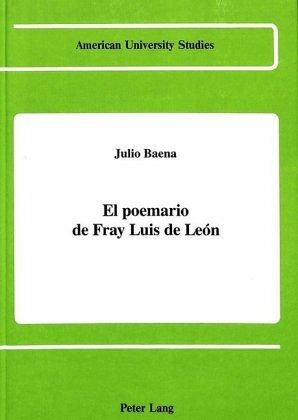Nicht lieferbar

El poemario de Fray Luis de León
Versandkostenfrei!
Nicht lieferbar
La construcción retórica del todo o poemario a partir de unidodes menorea o poemas es el tema de este ejercicio de teoria aplicada. No siendo el todo igual a la suma de sus partes - en términos dialécticos, - emerge de él una plusvalia de significado. Se estudia el poemario como fruto del trabajo de un intelectual y teólogo del siglo XVI especializado en la traducción biblica y la discusión filosófica. Una atenta mirada a la relación entre producción y lectura de textos minimiza la tradicional diferencia entre poesia "traducida" y "original".



